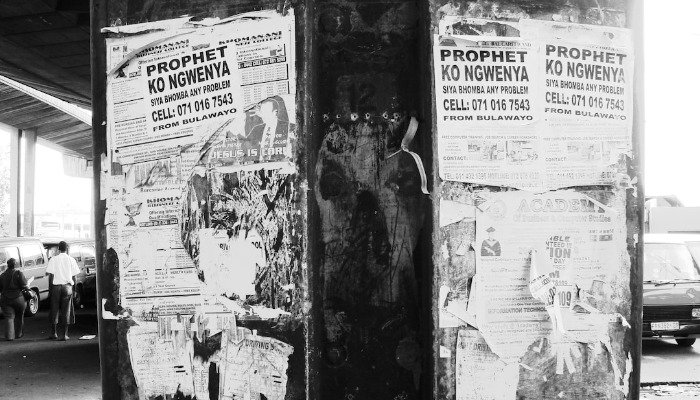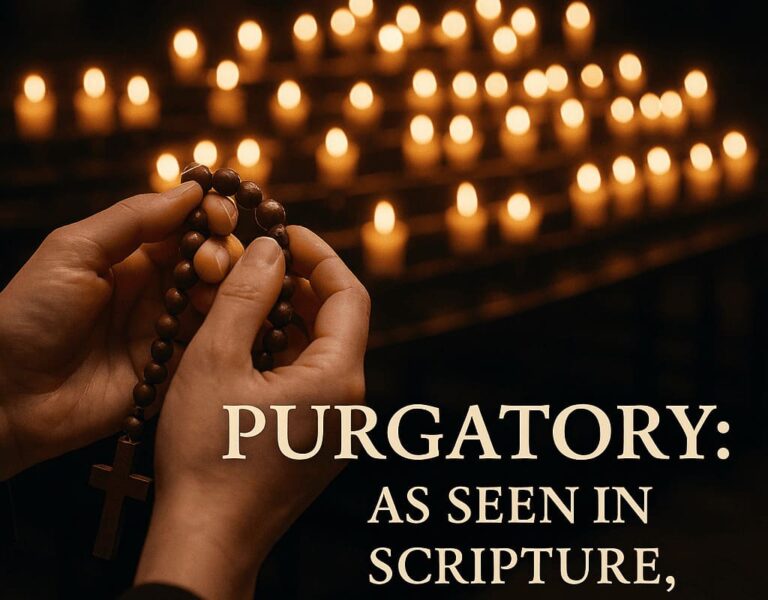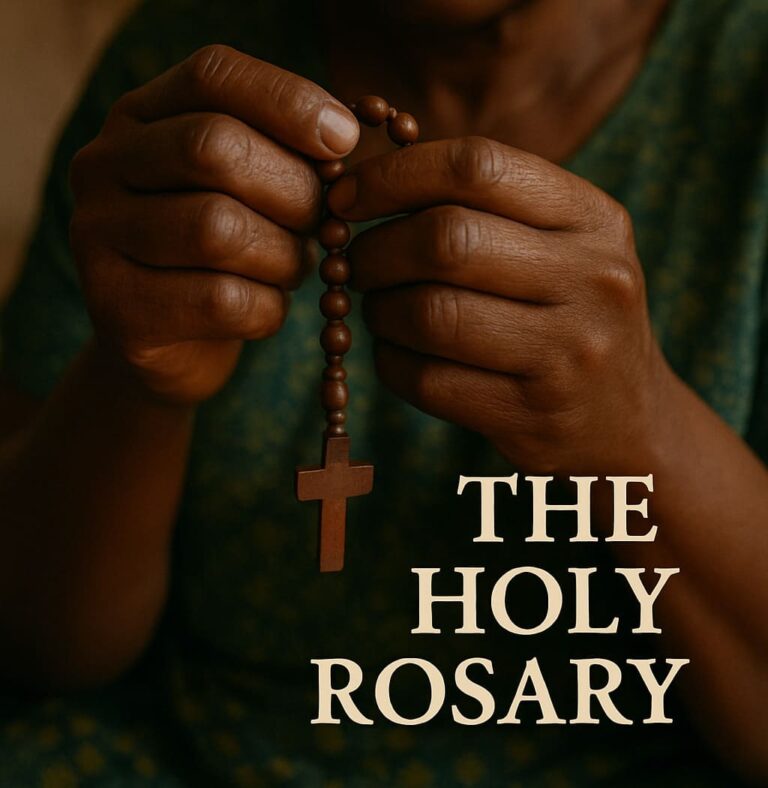Humility, Trust, and the Living Tradition of the Church
The phrase “Lord, I am not worthy to receive You” is a statement of humility recited by Catholics before Holy Communion. It is a phrase that comes from a Roman centurion’s confession to Jesus.
The centurion, recognizing Jesus’ power, humbly acknowledges he is not worthy for Jesus to “enter under his roof” but trusts that a single word from Jesus will bring healing. Catholics echo this ancient prayer to express their own humility before the Eucharist. But what is this faith that moves mountains, and how does one come to possess it?

The Nature of Faith: Personal Yet Communal
What is faith, and how does one come to believe?
Faith is a profoundly personal connection with God that touches us in our most intimate being and places us face to face with the living God in absolute immediacy. It enables us to speak to Him, love Him, and enter into communion with Him.
Yet this deeply personal reality is inseparably connected to the community of believers. Faith comes from hearing (fides ex auditu), as Saint Paul teaches us in Romans 10:17. We do not discover faith in isolation—it is transmitted through witnesses, through the testimony of those who have encountered God and make Him accessible to us. Our faith is founded on the words of Christ, He who is Truth itself.
Examples of Transformative Faith
The Gospels present us with remarkable examples of this living faith. Consider the leper who approached Jesus: “Suddenly a leper came and knelt before Him, saying, ‘Lord, if You are willing, You can heal me'” (Matthew 8:2). The leper demonstrated absolute trust that Jesus possessed the power to heal him. His faith was not presumptuous but humble: If you will, you can. This teaches us that our healing—both physical and spiritual—depends not on our worthiness, but on God’s merciful will.
Even more striking is the faith of the Roman centurion: “Lord, I am not worthy to receive you under my roof, but only speak the word, and my servant will be healed” (Matthew 8:8). This Gentile soldier, through what he had heard about Jesus, placed such complete trust in Christ’s authority that he believed a single word would suffice. In humility and faith, he obtained the miracle of healing.
These witnesses remind us that faith requires hearing—hearing the testimony of Christ’s power, hearing the witness of those who have experienced His love, and hearing the proclamation of the Gospel.
The Church’s Sacred Duty: Proclaiming Truth in Every Age
Supernatural truths must be believed, and the Church has the sacred duty to spread and proclaim these truths faithfully. This is not an optional mission but an essential one. When the Church fails in this responsibility, it betrays the very people who look to it for spiritual nourishment and guidance.
The Church is not a museum piece or a relic frozen in time—it is a living reality. Like all living organisms, the Church possesses a remarkable capacity for regeneration and renewal. For over 2,000 years, the Church has demonstrated an ability to discern what is essential for its mission and what must be set aside, always guided by sacred Tradition (with a capital “T”). This Tradition is not mere custom, but the living transmission of God’s revelation through the centuries.
Yet we must also acknowledge that the Church is composed of people living in the 21st century, influenced by contemporary theological currents. Modernism, relativism, and secular philosophies continually challenge the faithful transmission of doctrine. This explains the restlessness and confusion felt among many of God’s people today. Despite scandals, defections, and attacks from without and within, the Church remains alive and vibrant because it continually renews itself while remaining faithful to its apostolic foundation.
The secret to the Church’s vitality? It looks to the future while remaining faithful to the past—always new, yet always the same; always growing, yet never abandoning the deposit of faith.

Our Response: Bearing Witness in Challenging Times
In our contemporary context, false teachings proliferate, spread by voices that claim to speak for the Church while undermining its foundations. True faith, however, is not built on error or subjective opinion—it is built on the unchanging truth revealed by Christ and faithfully transmitted by His Church. We must be vigilant against doctrinal confusion while remaining charitable toward those who struggle with doubt or confusion.
The antidote to error is not merely intellectual argument, but lived witness. Our lives must become testimonies to the faith we profess. Around the world today, countless Catholics bear witness to their faith even unto death. Their martyrdom speaks more powerfully than any theological treatise.
Let us ask Mary Most Holy for the grace to rise to the challenges of our time—to recognize doctrinal deception when we encounter it, and to bear authentic witness with our lives to the true faith we profess. May our humility mirror that of the centurion, and may our trust in Christ be absolute.
In a world hungry for truth, may we be faithful witnesses to the One who said, “I am the Way, the Truth, and the Life” (John 14:6).






